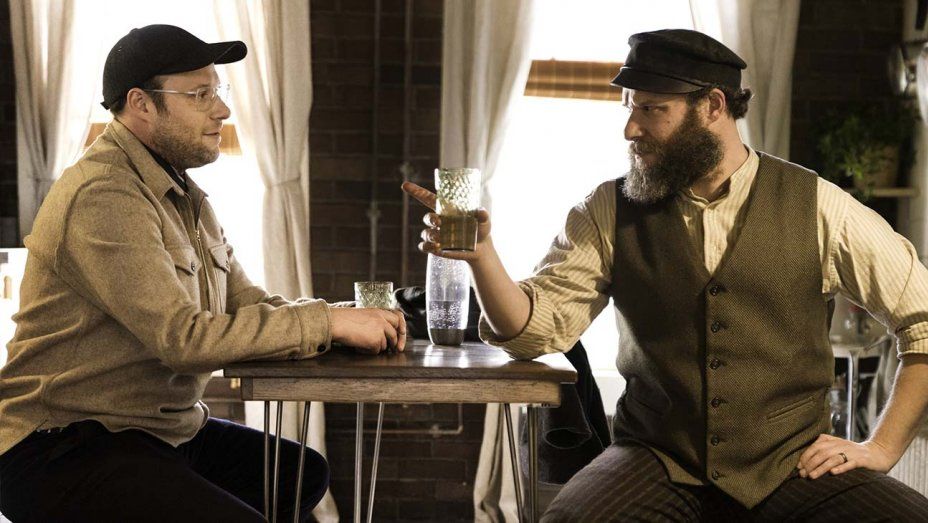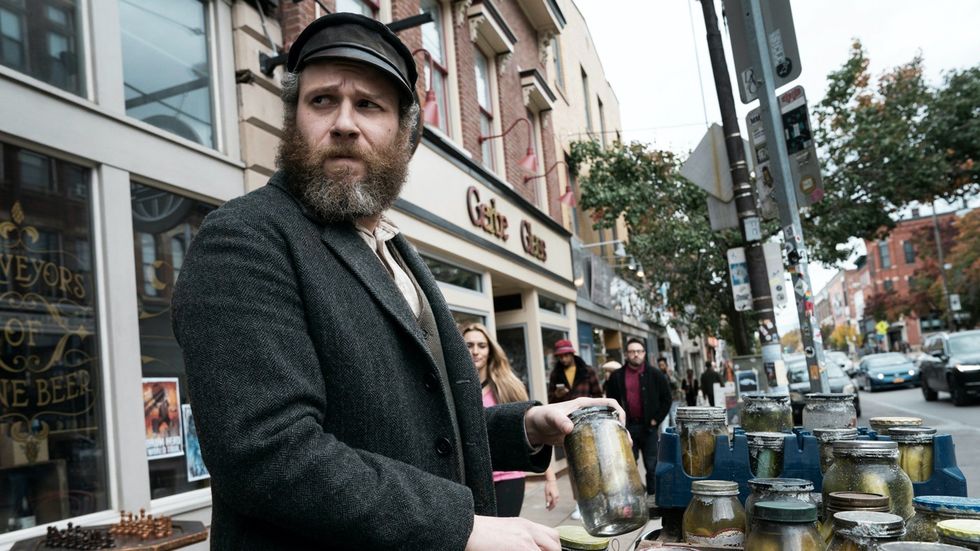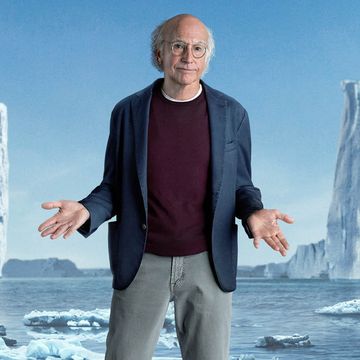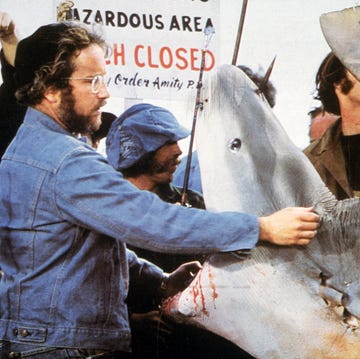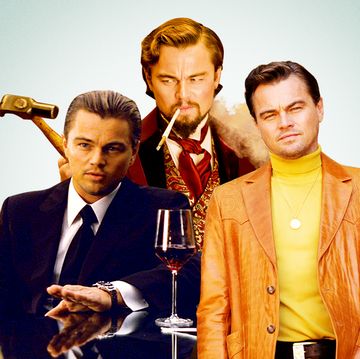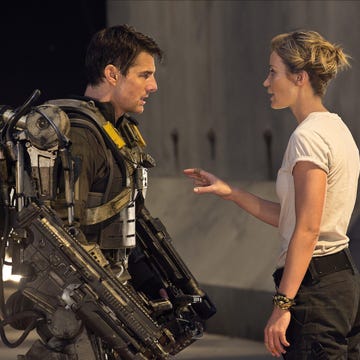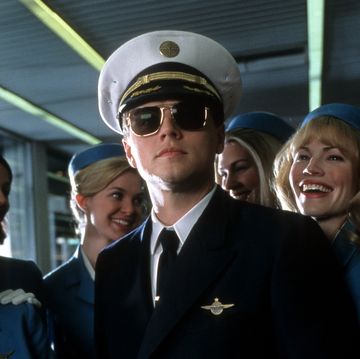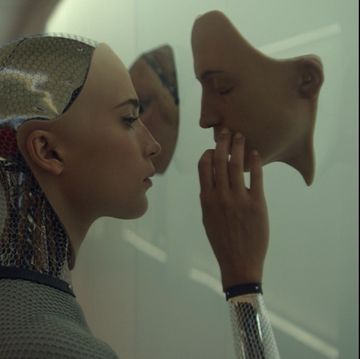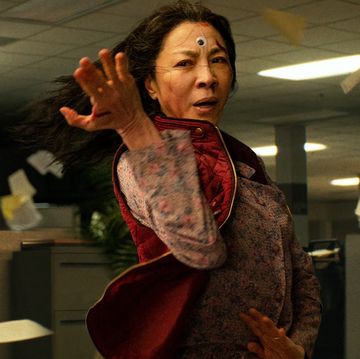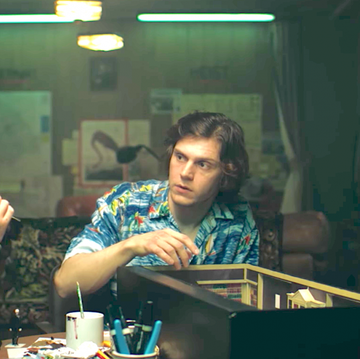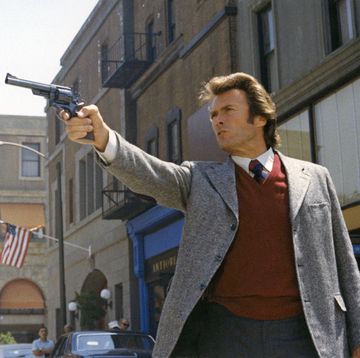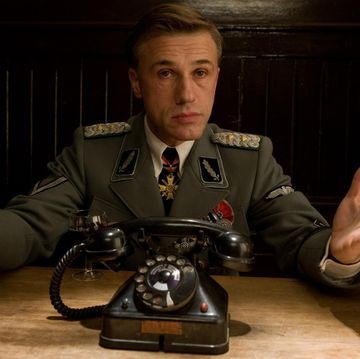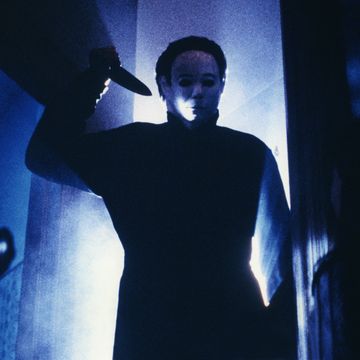“I am not smart with words, but I work hard every day of my life.”
So begins ‘Sell Out’, the acclaimed novella that, when it was released seven years ago, prompted the Guardian to ask, ‘Is Simon Rich the funniest man in America?’. It told the bittersweet story of Herschel, a hard-scrabble immigrant from Slupsk, northern Poland, who accidentally falls into a vat of brine in 1913 and wakes up a century later, pickled and preserved, in modern day New York. He’s subsequently (and reluctantly) housed in the luxurious brownstone apartment of his only living relative, his great-grandson Simon: a weak, shallow, spiritually dissatisfied script writer who brings great shame upon the family name. “Unrelentingly terrible and despicable in every way,” is the author's uncharitable verdict on his own comic likeness.
He might be hard on himself, but Simon Rich is very smart with words, and evidence suggests he works hard every day of his life, too. Born to a high-achieving family of journalists and authors (his father is columnist turned Veep- and Succession-producer Frank Rich; his brother is acclaimed novelist Nathaniel Rich), the New Yorker wrote his first book at the tail-end of high school and published his debut short story collection, Ant Farm, at the age of 22. Upon graduating from Harvard he was hired as one of the youngest writers in Saturday Night Live’s history, before being plucked by Pixar to work on Inside Out. As Herschel would say: is fine.
The last five years have been focussed on writing stories (he has released nine books altogether) and bringing them to our TV screens in the form of Man Seeking Woman and Miracle Workers. His latest project, An American Pickle, based on the aforementioned ‘Sell Out’, is his first big screen adaptation, and stars Seth Rogen as both the briny time traveller and his disappointing descendant. We spoke to the 36-year-old about the process of bringing the story to life, the challenges of social media, and comedy in the age of Trump.
An American Pickle has been seven years in the making. Tell us about that journey.
It's such an unusual story that when I wrote it, I wasn't thinking that I would ever have a chance to adapt it to any other medium. But when the New Yorker ran it, my very first move was to pitch it to Seth and Evan [Goldberg, co-creators of Superbad]. I was a huge fan of their work growing up; Freaks and Geeks in high school and Undeclared, Da Ali G Show too, and I was an enormous fan of their films. I also thought Herschel would be a perfect part for Seth, so I went to LA and pitched.
He plays the great-grandson Ben, too. Seth Rogen's the most likeable man in Hollywood. Why was he the first choice for such an unlikeable character?
[In 'Sell Out'] you're so locked into Herschel's point of view that you don't actually have to spend a lot of time with the 'Simon Rich' character. You see him out of the corner of your eye, but in the movie Ben has a lot of screen time. So if we made him completely unlikeable and horrible in every way, I feel like audiences would just be disgusted and not be able to take him for long enough to sit through the film.
I was wondering if you were finally beginning to give yourself a break.
I can assure you that I will never stop attacking myself as hard as I possibly can.
Hipsters feature a lot less than they did in the story, for obvious reasons.
I think the reality is just that millennials have entered into their 40s. When that story came out in 2013 we were at peak saturation of hipsters and it was maximally annoying. Now there are more annoying things in culture to focus on.
Cancel culture creeps up at one point. What made you want to explore that?
We're just trying to explore some of the some of the ways in which Herschel, a person with his point of view [pulled straight from 1911], would succeed or fail in contemporary society.
On a character level, Herschel is extremely driven and uncompromising in his beliefs, and the character of Ben is so cautious and timid and repressed. The dynamic as the film progresses is you realise they could both probably stand learn to a thing or two from one another. Herschel could probably benefit from tempering some of his beliefs, or at least be less stridently offensive. Ben, in contrast, could do with a little bit more chutzpah.
Twitter is part of that fall-out. Why don't you use social media?
I Just can't imagine squeezing in time to participate in what seems as an outsider to be all-consuming. I will occasionally go on Twitter and see what's trending and then I'll realise that half an hour has passed and that terrifies me. I already spend an hour a day at least looking at random articles on Wikipedia. The last thing I need is social media on top of that. I'd never finish another book again.
Religion plays a bigger part in the movie than it does in the short story. Why is that?
I've always written about religion pretty extensively. It's not so much out of an obsession with religion itself; it's more of an existential drive that makes me gravitate towards subjects like God and faith. I'm interested in the humility that religion forces upon people, the smallness of humans in any kind of religious cosmology. I'm always interested in characters that are weak or frail. I think they're the most compelling and poignant. I think when you write about humans, in the context of God, you can really get to their frailties and smallness in a visceral way.
As a result, the film is a lot more hopeful than the short story is.
I think increasingly in all my writing, I try my best to aspire for some kind of redemption. I think it's easy to write work that's just unrelentingly cynical. When I started off as a writer a lot of what I did was pretty bleak. Now that I'm older, I'm just striving to write stories that, even if they end up being superficially miserable and bitter, I hope that by the end of the story there's at least some redemptive moment or gesture that will make the reader or viewer less depressed. There's enough bleakness in the world right now.
You need to offer people something else, I guess?
I think if you look at my earliest books, it's almost entirely bleak. And then by the time I wrote The Last Girlfriend on Earth, I would say it was a 50/50 split. I think the balance started to shift more towards hope and redemption, although there is still bleakness thrown in there. I think the stories in my next book almost entirely land on the side of hope.
Would you ever write a non-comedic novel, or would the opportunity for a laugh be too hard to resist?
It's interesting, when I'm writing I'm never consciously going for a laugh. What I'm really trying to do is just write characters that are compelling enough to make people want to keep reading. That's really my goal. For that reason, the characters that I end up writing about are often very stupid or wrongheaded in some way. And so that kind of lends itself to comedy, organically. If I were writing about characters who were principled and intelligent, it would be possible to write in another genre. But I'm just not interested in those kind of characters. I like to write about characters that are extremely ignorant or flawed in some very obvious way. I never relate to characters who are intelligent or principled. I always relate to characters who are deeply screwed up and naive.
If that's the case, why is it that so many comedians say that they struggle to write jokes and sketches about Trump?
He happens to be a character without any redeeming qualities, which makes him not particularly fun to write about. The kind of characters I write about might be similarly low intelligence, and they might even have some of the same flaws, but I would never write about a character unless I thought there was some kind of positive aspect to their existence. Because the reader would just reject it, you know? It's just too hard to look at something like that. I try to write about characters that, despite their flaws, have some good to them on some level. Unfortunately our current president does not fit the bill.
An American Pickle is in cinemas now, and on HBO Max in the US
Like this article? Sign up to our newsletter to get more articles like this delivered straight to your inbox
Need some positivity right now? Subscribe to Esquire now for a hit of style, fitness, culture and advice from the experts

Nick Pope is the Site Director of Esquire, overseeing digital strategy for the brand.

